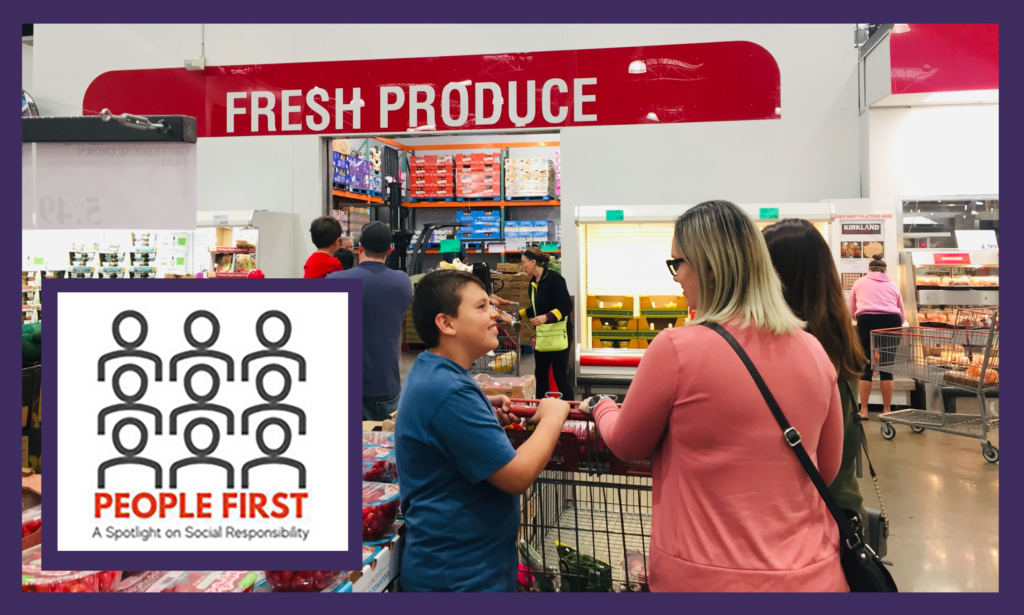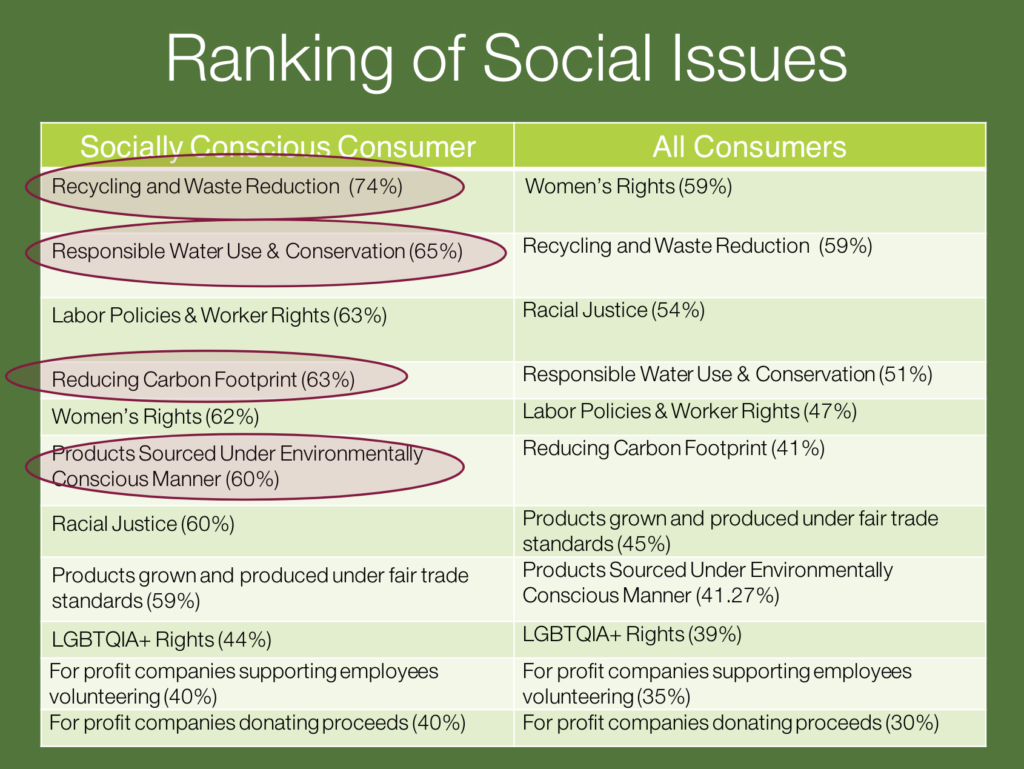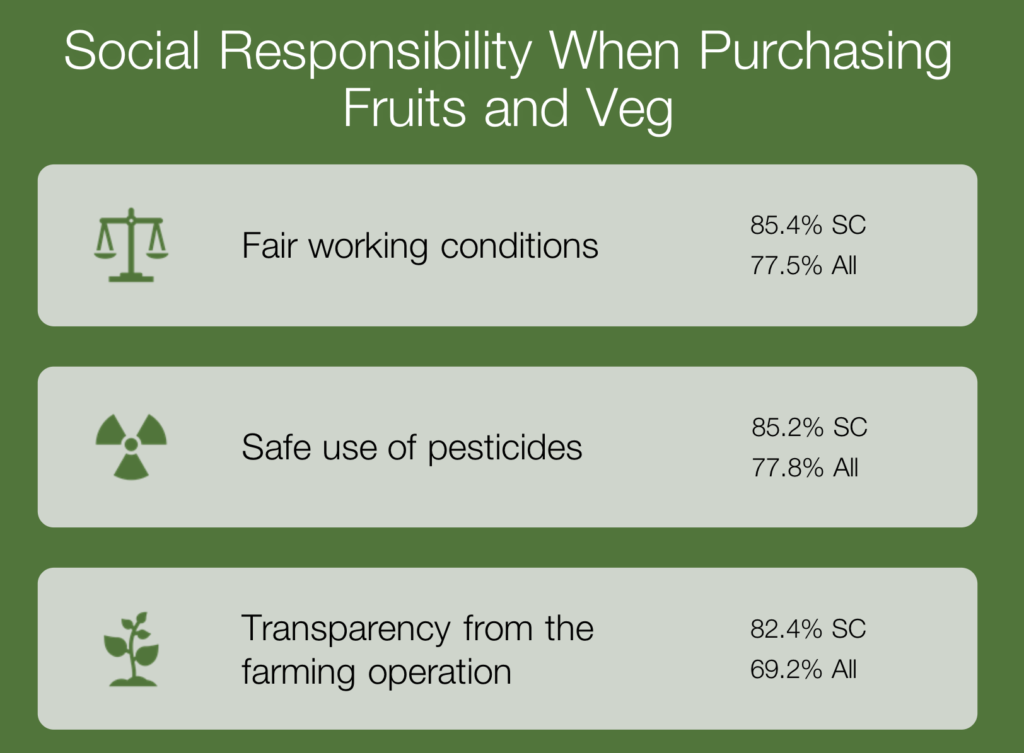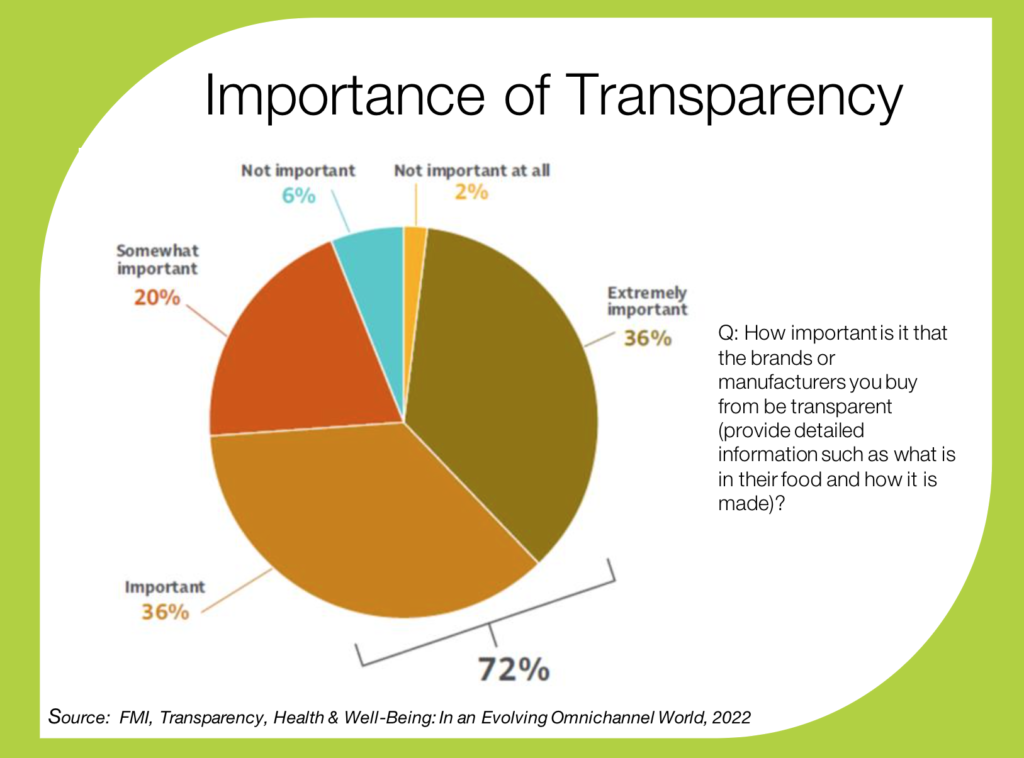How Food and Agriculture Companies Can Rise to Address the Concerns of Today’s Consumer

In the fifth webinar of the People First series presented by The Packer and Equitable Food Initiative (EFI), Chris Padgett, a consultant with Working Strategy, and LeAnne Ruzzamenti, Marketing Communications Director for EFI, dive into the big issues that drive consumer consciousness and ultimately impact purchase behavior and brand loyalty. They share insights from the latest consumer research, including a study by EFI, as well as perspectives on the future of social responsibility and sustainability for the fresh produce industry.


Today’s consumer is more interested in issues surrounding social responsibility: transparency, equity, the environment and people.
Understanding the issues related to social responsibility that consumers care about most, who the consumers most engaged in social responsibility are, how current events affect consumer concerns and what factors affect purchasing behavior can help direct marketing efforts for fresh produce companies.
The Blurred Boundary Between Sustainability and Social Responsibility
Companies may consider their social responsibility and sustainability programs as different, but the line separating these two concepts in the minds of today’s consumers is blurred.
For consumers, sustainability encapsulates both social responsibility and environmental issues. Both are at the forefront of consumers’ minds.
Ten years ago, 50% of consumers reported having a top-of-mind awareness about the term sustainability. Today that number has risen to 80%. Further, nearly 28% of consumers consistently base purchasing on sustainability — that’s up 12 percentage points since 2007.
“From a business standpoint, you may think about social responsibility and sustainability as different, but consumers think of them as one and the same.”
– Chris Padgett, Marketing and Digital Strategy Leader
Who is the Socially Conscious Consumer?
The average consumer and the socially conscious consumer rank the issues important to them in a similar way, but socially conscious consumers have stronger feelings surrounding these issues.

Socially conscious consumers put their money where their values are. This consumer segment actually makes up a big part of the general population. EFI’s consumer study found that 73% of the 900 total survey respondents said they make purchase decisions based on how brands do or do not support social or environmental issues. Other studies confirm that data, having found about 65% of the general consumer population are socially conscious consumers.
Socially conscious consumers are better educated, skew younger and tend to live in urban settings. Research shows that income level was not a determining factor of their willingness to pay more for a product that aligns with their values.
“You are not going to alienate the average consumer by focusing on issues that are important to the socially conscious consumer, rather you will differentiate your brand and attract loyal customers from the more engaged socially conscious segment.”
– LeAnne Ruzzamenti, Marketing Communications Director for EFI
Hot Button Issues Change, Sustainability’s Significance to Shoppers Continues to Grow
The key issues that drive consumer care and concerns behind social responsibility can change quickly with current events. Consider that in February of 2022, rising inflation had already replaced the pandemic as the number one most concerning issue, even though effects of the pandemic linger.
Consumers expect companies to address the current issues as a part of their sustainability efforts, even as these issues change with the times.
Consider these statistics:
- 70% of consumers want companies to address important social issues
- 9 of 10 consumers will purchase products based on a company supporting an issue they care about
- 3 out of 4 will refuse products or services upon learning the company supported an issue contrary to their beliefs
How Sustainability and Social Responsibility Values Can Affect Purchasing Decisions
Post-pandemic consumers have a greater appreciation for how fragile the world is and the way things that are out of their control can have a profound affect on their lives. These consumers are looking to enrich their lives in ways they can control and this includes their grocery store purchases.
“In a time when consumers may feel like they don’t have control over many parts of their lives, whether pandemic or inflation, they do have some control or influence on things that matter to them, and they can make those choices with their wallets.”
– Chris Padgett, Marketing and Digital Strategy Leader
While consumers may be ultimately looking for a good value and high product quality, when you consider that over 75% look to the package for some kind of demonstration of a company’s values, you see that communicating sustainability efforts can offer a tipping point for consumers who value social responsibility and the environment.
EFI research shows that for socially conscious consumers, social responsibility ranked as important as getting a good price on their fresh produce purchase and that fair working conditions are just as important as reduced plastic or sustainable packaging when purchasing fresh fruits and vegetables.
Almost 80% of shoppers show an interest in learning more about a brand than what’s on the label. Being able to deliver more information about your company’s products whether on your website, social media or some other channel when consumers are looking for it can make the difference between them choosing to purchase your product or not.
Looking to Future Trends Through the Attitudes of the Younger Generations
The approach to align values to purchases demonstrated by Millennials and Gen Z is much stronger than any generations before them. As they grow in buying power and their importance in the world as a population, we can expect sustainable purchasing decisions to continue to rise.
Generational Breakdown of Ranking Purchases on Sustainability
- 44% of Millennials
- 26% of Gen Z
- 23% of Gen X
- 16% of Boomers
WHAT’S ON THE HORIZON?
Food and Ag Companies Step Up to Address Concerns of Consumers
After adopting the Ethical Charter on Responsible Labor Practices in 2018, the importance of fair labor rose to the level of food safety.

The pandemic further made the invisible farmworker visible and consumer concern for fair working conditions is reflected in multiple consumer studies.
EFI research shows that the top issues consumers feel companies should be addressing are all relevant to food and agriculture companies:
- worker rights and welfare
- climate and environment
- community support
- women’s rights
- racial justice
- fair trade
When it comes to purchasing fresh fruits and vegetables, working conditions, pesticide use and transparency top the list of what’s most important to consumers.
There are some hard conversations that we need to have as an industry in terms of how we address these concerns for consumers and assure that our supply chains have good working conditions, reflected from the front of the house of the retailer to the person who fertilizes the soil and plants the seeds — that’s all on the mind of the consumer.
– LeAnne Ruzzamenti, Marketing Communications Director for EFI
Partnerships With Retailers and Third-Party Organizations

As shoppers’ expectations for social responsibility efforts grow, they will be turning more to retailers and online to find more information on the brands to support. This will make partnerships with retailers a key way of making intangible actions tangible to shoppers through storytelling.
Creative opportunities through partnerships with retailers is one way to broaden your brand’s reach. Retailers often have channels of communication with their shoppers, such as a promotional display or print magazines or newsletters, that can feature stories about your brand.
Three out of four consumers say transparency is important or extremely important or for them. This means knowing what’s in products, how they are made, and the practices and programs of the company behind them. Giving prominence to third-party certifications on packaging and in consumer communications can help give the consumer the information they’re searching for when making purchasing choices.

Resource: Five Tips for Building Brand Transparency to Attract Socially Conscious Consumers
Check out EFI’s tip sheet for takeaways from the latest consumer research and practical ideas to reach this important segment of the population.
LEARN MORE
To learn more about EFI and the Responsibly Grown, Farmworker Assured® label, along with EFI certification for safer and healthier working conditions for farmworkers, visit equitablefood.org/label.
Other Posts in the People First Series:
Challenges and Opportunities: Rethinking the Way Work is Done Adds Value to the Supply Chain
Solving Labor and Recruitment Challenges: Navigating the H-2A Program
Hiring for the Skills of Tomorrow – Upskilling and Credentialing in Agriculture
Greenhouses – A Tool for a Sustainable Future
Intro to the Ethical Charter on Responsible Labor Practices
How Responsible Recruitment Practices Unlock Competitive Advantage
Myths and Realities of Social Compliance


